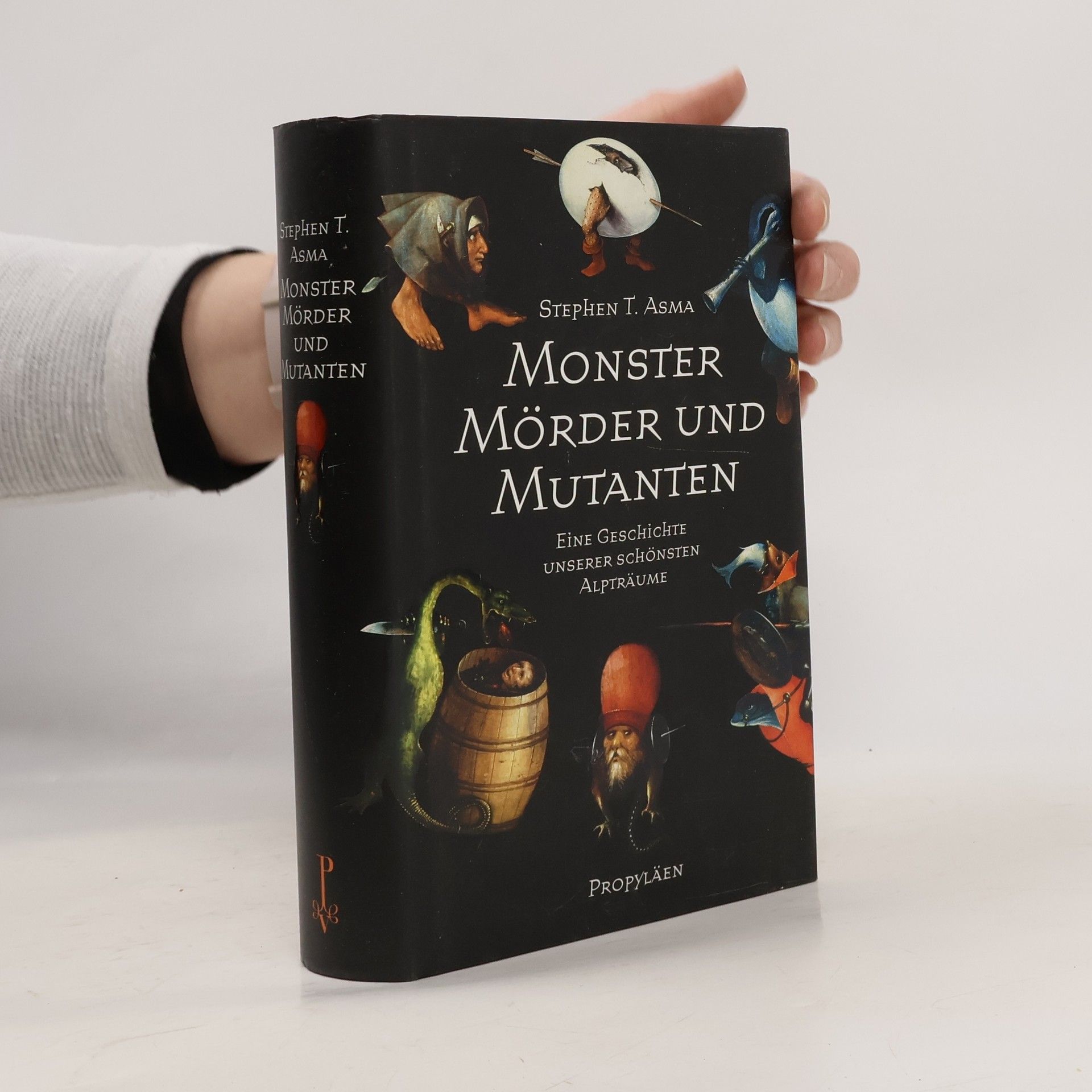Wer glaubt, Monster, Gespenster und Ungeheuer seien nur etwas für Kinder, wird hier eines Besseren belehrt. Zwar erzählen wir uns heute nicht mehr von Gog und Magog oder den biblischen Monstern der Apokalypse. Auch Dr. Jekyll und Mr. Hyde oder das Seeungeheuer von Loch Ness ernten nur noch ein müdes Lächeln. Jede Zeit hat ihre eigenen Monster. Heute sind es (wieder) Werwölfe und Vampire, die uns faszinieren. Doch auch in der realen Welt gibt es einiges zu fürchten - ob von Osama bin Laden oder dem Stalker von nebenan. Asma erschließt ein ganzes Panoptikum des Unheimlichen und öffnet uns zugleich die Augen: Wir alle brauchen Monster. Wir suchen das Böse nicht in uns selbst, sondern projizieren es nach außen. Was seit Freud und Nietzsche die Psychologie umtreibt, wird in dieser originellen und reich bebilderten Kulturgeschichte zum ersten Mal systematisch auf den Punkt gebracht.
Stephen T. Asma Bücher
Stephen T. Asma ist ein führender Denker, dessen Werk Philosophie, Naturwissenschaften und Kulturgeschichte verbindet. Seine Forschung befasst sich mit tiefgreifenden Fragen des Glaubens, der Ethik und der menschlichen Natur und bietet oft einzigartige Perspektiven auf religiöse und wissenschaftliche Traditionen. Asma untersucht, wie diese Systeme unser Verständnis der Welt und von uns selbst prägen, und liefert originelle Interpretationen von gängigen und ungewöhnlichen Phänomenen. Seine Schriften fordern die Leser heraus, sich mit der Komplexität der menschlichen Existenz auseinanderzusetzen.





Weg mit den Räucherstäbchen, hin zum Wesentlichen! Muss man als Buddhist nicht ganz viel Ruhe um sich haben? Die Tür zumachen, um in Achtsamkeit seine Möhren zu schnippeln, oder sich allein in die Berge zurückziehen, um in einer Höhle endlich richtig zu meditieren? Quatsch! Gerade in Momenten des alltäglichen Wahnsinns können wir uns mit Buddhas Lehre besonders schnell in Richtung dauerhaften Glücks entwickeln. Wer den Buddhismus wirklich kennenlernen will, braucht keine Klangschalen, sondern nur dieses Buch.
Hailed as "a feast" ( Washington Post ) and "a modern-day bestiary" ( The New Yorker ), Stephen Asma's On Monsters is a wide-ranging cultural and conceptual history of monsters--how they have evolved over time, what functions they have served for us, and what shapes they are likely to take in the future. Beginning at the time of Alexander the Great, the monsters come fast and furious--Behemoth and Leviathan, Gog and Magog, Satan and his demons, Grendel and Frankenstein, circus freaks and headless children, right up to the serial killers and terrorists of today and the post-human cyborgs of tomorrow. Monsters embody our deepest anxieties and vulnerabilities, Asma argues, but they also symbolize the mysterious and incoherent territory beyond the safe enclosures of rational thought. Exploring sources as diverse as philosophical treatises, scientific notebooks, and novels, Asma unravels traditional monster stories for the clues they offer about the inner logic of an era's fears andfascinations. In doing so, he illuminates the many ways monsters have become repositories for those human qualities that must be repudiated, externalized, and defeated.
Bohové pijí whisky : putování za osvícením v zemi rozprášeného Buddhy
- 295 Seiten
- 11 Lesestunden
Příběh amerického profesora filozofie, který byl kambodžským Buddhistickým institutem vyzván k výuce buddhismu. V zemi bylo, díky Pol Potovu režimu, toto náboženství téměř vymýceno, zejména jeho racionální podoba (tzv. thammajutový buddhismus). Text psaný stylem, jak říká autor, "filozofického žurnalismu" se pokouší zaznamenat každodenní kulturní projevy théravádového buddhismu (nejstarší a nejčistší formy buddhismu rozšířené v jihovýchodní Asii) spolu s příběhy a zážitky s místními obyvateli, zvířaty i přírodou.